|
Saturdee
Opry Links # 127:
Gone but not forgotten
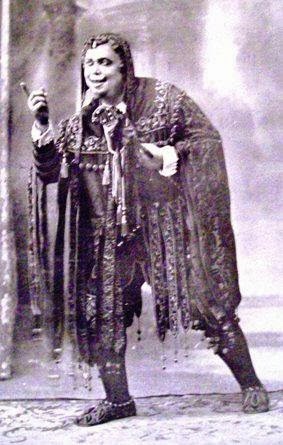
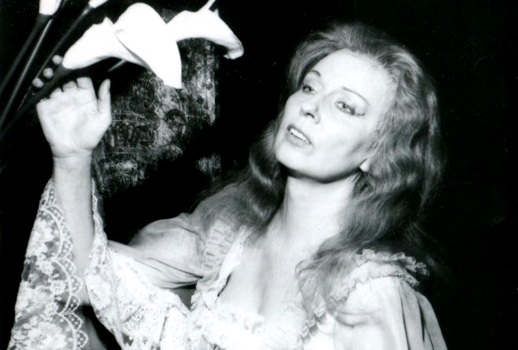
| Giuseppe Bellantoni as “Rigoletto.”
Magda Olivero
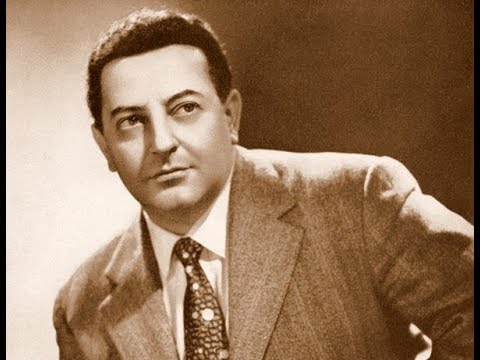 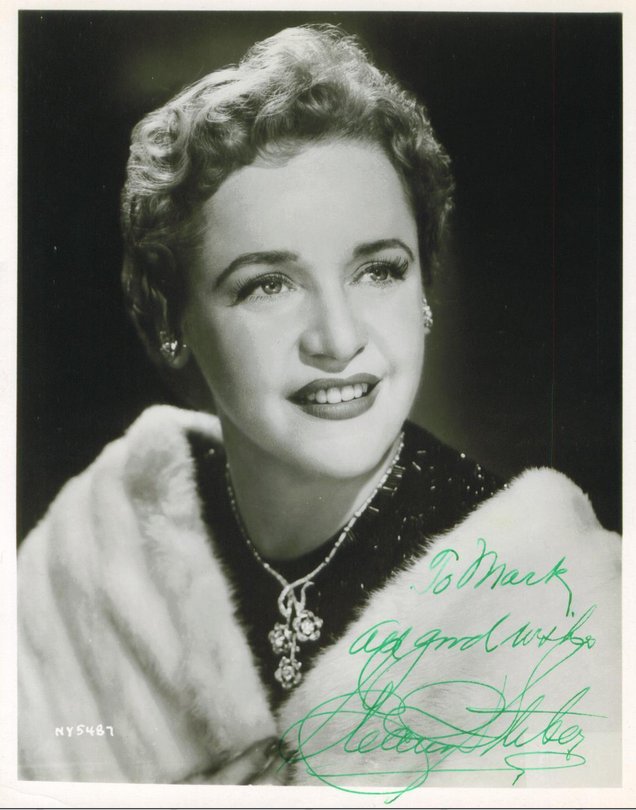
Achille Braschi
Eleanor Steber
Overture:
“La Gazza Ladra” (“The Thieving Magpies.”)
https://www.youtube.com/watch?v=vGIecxLbpaI
1.
Okay, kiddies, we open with a rarity so rare that there is no translation of it
on Google. This is from the opera, "Saffo," by Giovani Pacini, who was one "u"
and two "c's" away from greatness. Never heard of him? Me, neither, yet this
contemporary of Rossini and Bellini wrote 74 operas! Why is he eclipsed? Perhaps
there is a clue in his own memoir, in which he rather humbly said that his works
were "rather superficial." Yet here we have a cavatina (aria, basically) that is
lovely and noble sounding: "Di sua voce il suon giungea," recorded way back in
1909 by the great forgotten baritone, Giuseppe Bellantoni. A man whose rich
voice is chocked full of lyricism and beauty. If such things can be chocked. The
translation of the aria's title says what needs to be said about Bellantoni:
"The sound came in his voice."
https://www.youtube.com/watch?v=yF_EA5PoirI&feature=share
About Pacini:
https://en.wikipedia.org/wiki/Giovanni_Pacini
About the opera:
https://en.wikipedia.org/wiki/Saffo
2.
I am captivated by Giuseppe Bellantoni's voice. What luck that he made a bunch
of recordings about 110 (gasp) years back. There are many, many wonderful
baritones, but of course. Yet Bellantoni has a quality of depth, fullness,
richness (wait---that's three qualities!), lyricism, tenderness, strength
(wait---that's six!) that adds up to something I can't quantify. It's sort of
the essence of what I find beautiful about opera. The singing of this aria is,
to my ear, just astonishingly great. Can't tell you for sure what is going on at
this point in this opera---"La Favorite," by Donizetti---but I think it is this
scene:
King Alphonse of Castile is to honour Fernand for his role in the war. He asks
Fernand what reward he would like and Fernand asks to marry the woman who has
inspired him in his bravery. Alphonse asks who she is and Fernand points to
Léonor. The King, who is in love with Leonor, is astonished to learn that
Fernand is his successful rival. In an abrupt change of mind, he orders Fernand
and Léonor to marry within one hour. Léonor is left with mixed feelings of
apprehension and delight.
https://www.youtube.com/watch?v=PpBCCctrvl0
Translation:
Italian---
ALFONSO
Tu dei partir.
A tanto amor, Leonora, il tuo risponda,
quand'ei felice non vivrà che in te
dolce la speme del suo cor seconda,
ch'ei mai non debba maledir tua fé!
Partial English:
You of the partir.
With so much love, Leonora, your answer,
when he is happy he will live only in you
sweet the hope of his second cor
that I must never curse your faith!
About Bellantoni:
http://www.operavivra.com/artists/baritones/giuseppe-bellantoni/
3.
One of the things about opera that makes it so rewarding---maybe the primary
thing---is the variety of voices and interpretations. Here is a forgotten tenor,
Achille Braschi, whose voice at first listen seems a little off-putting, from
the nasal quality, and the vibrato. Yet the more you listen, the more you are
compelled by the commitment and ardor he brings to this classic Puccini aria, "Recondita
Armonia," from "Tosca."
https://www.youtube.com/watch?v=37ryt0SsywY&feature=youtu.be
Synopsis:
Setting: The inside of a Roman church
Synopsis: Cavaradossi is painting a Madonna for the church and he has based the
painting on a woman who prays often at the church. He sings of the differences
between his picture of a fair Madonna and the darker beauty of his love, Tosca.
Translation:
http://www.aria-database.com/search.php?individualAria=304
4.
Forgive the sound quality here, live on stage in 1957. This, again, is Achille
Braschi, and I detect no vulnerable heel in this performance. Many a tenor has
ascended to the ridiculously demanding heights of this raging Verdi passage, and
many a tenor has been felled in the process. Braschi, though well past his
prime, climbed the mountain with gusto. This goes out to Bonnie Tone. "Di quella
pira," or "That terrible pyre."
https://www.youtube.com/watch?v=ZBdh9yYRirU
About Braschi:
http://forgottenoperasingers.blogspot.com/2019/07/achille-braschi-tenor-rome-italy-1909.html
Synopsis: A room adjoining the chapel at Castellor, 1409.
Manrico has discovered that his mother Azucena has been captured by the Count of
Luna and is about to be burned at the stake. Furious, Manrico calls together his
soldiers and sings valiantly of how they will save Azucena from death.
Translation:
http://www.aria-database.com/search.php?individualAria=514
About Achille Braschi:
https://historicaloperarecordings.blogspot.com/2019/09/italian-tenor-achille-braschi-1909-1983.html
5.
Yes, yes, I know---some sopranos drive you nuts. But it really isn't the
soprano, I would venture to say, but the style of singing. The bel canto period
of opera, roughly 1820 to 1860 or so, is marked by heavily ornamented, melisma-laden,
(many notes per syllable) acrobatic fare that is not for everyone (and is the
primary source of opera parody.) Many prefer a more legato (smooth, flowing)
line. Here is a prime example of the latter, guaranteed to not drive you nuts.
The great star of the old Met, Eleanor Steber, sings the gorgeous lines of
Mozart, specifically "Porgi amor de Le Nozze" from "The Marriage of Figaro." Ms.
Steber was one of the first great soprano opera stars to have trained entirely
in the U.S..
Synopsis: The Countess Almaviva, wife of the Count Almaviva, laments that the
Count has lost his love for her. In other words, she's down for the Count.
https://www.youtube.com/watch?v=VnMxHIRCxQQ
Translation:
http://www.aria-database.com/search.php?individualAria=216
About Ms. Steber:
http://www.cantabile-subito.de/Sopranos/Steber__Eleanor/hauptteil_steber__eleanor.html
SOL EXTRA!
A Conversation with Eleanor Steber!
"I don’t think the younger singers ever have a chance to know where in
the hell they are today! [Both laugh] They start out and they make a success
in one part that would seem to have a rather large expanse, like a Wagnerian
role, and all of sudden they’re being thrown into roles that are like that.
They should have a variety which makes it possible for the voice to expand
itself in all ways."
http://www.bruceduffie.com/steber.html
6.
The video quality isn't so great, but am posting because of the quality of Magda
Olivero's coloratura soprano. Yes, it can be piercing, but stupendous in its
alacrity and control. Need it be said that this is difficult singing, folks, and
requires real vocal athleticism? Think: gymnastics floor routine in your throat.
The opposite of legato (previous post.) Plus it has a fantastic laugh at 4:54!
This is "E Strano" followed by the antic, beloved melody, "Sempre Libera," in
which Violetta, the main character in Verdi's "La Traviata," proclaims her free
spirited nature. Wonderful stuff. "Free and aimless I must flutter!" Me, too.
https://www.youtube.com/watch?v=zeTiCjYY1e8
Setting: A salon in the house of Violetta after a big party
Synopsis: In the first part of this aria, Violetta muses over the offer of
Alfredo's love and wondering if he is her true love after her numerous flings.
In the second part, she decides not to worry about her problems and, instead,
live only for pleasure and freedom.
Translation:
https://www.opera-arias.com/verdi/la-traviata/ah-fors-e-lui-che-l%27anima/
7.
Magda Olivero was one of the towering operatic figures of the 20th century,
dying in 2014 at the age of 104. She debuted at 22, way back in 1932, but
retired to have children in 1941. Unable to fulfill this, her life's fondest
wish, the lady returned to the stage in 1951, and stayed there for the next 30
years! Get this: Ms. Olivero debuted as Puccini's "Tosca" at age sixty-five(!)
at the Met---quite an event, met with wild applause and now duly referred to as
legendary: "At her third and last Met performance (she sang Tosca on tour in
1979), Olivero acknowledged the insistent cheers of the throng pressing forward
on the orchestra floor by edging along the narrow lip at the base of the
proscenium to touch the outstretched hands of her admirers. A misstep would have
plunged her into the pit. With this gesture, Olivero showed what made her
unique: she sang and acted as if her life depended on it." ---from "The Story of
the Met," by Charles and Mirella Jona Affron. And here, from that very Met
"Tosca" debut, is the 65-year-old singer, with the aria, "Vissi d'arte." No, she
does not have the control she had as a young coloratura, and is maybe a little
flat here and there, but listen to the heart, and the big notes. And the
audience.
"I lived for art."
https://www.youtube.com/watch?v=2vlD3sK-O8o
Synopsis: Having been blackmailed into a promise of sex with the evil Scarpia,
in exchange for the life of her imprisoned lover, the painter, Cavaradossi," the
singer Floria Tosca asks why God has been so unjust to her.
Translation:
http://www.aria-database.com/search.php?individualAria=302
8.
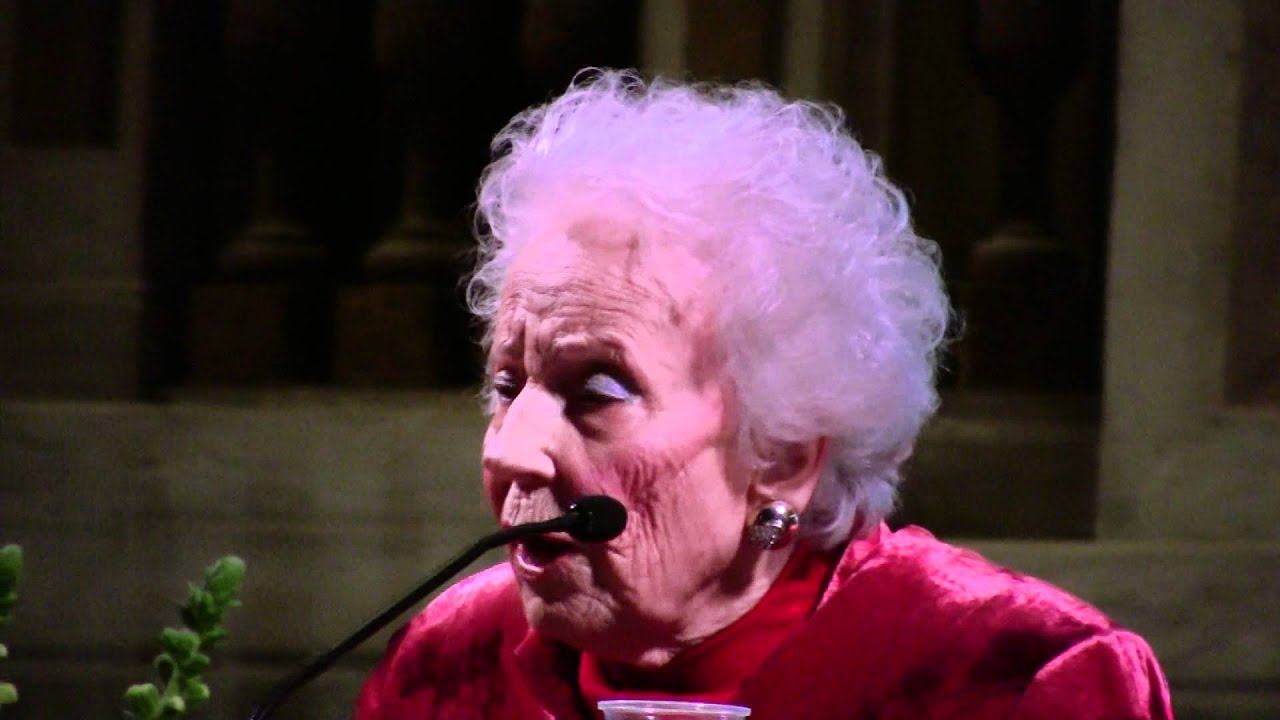
Ms. Olivero at 100
Okay, so a little old lady comes into your music store, and starts looking over
the sheet music. You work there. You think, "Oh, my, this poor elderly woman
will probably need special care, extra attention. Maybe she used to be a music
teacher or something. I'll probably have to speak loudly." Then the little old
lady picks up the sheet music to Panis Angelicus," ("Bread of Angels"), set by
Cesar Franck, and starts to sing. And you are to be forgiven for being unable to
pick your jaw up off the floor, or for spontaneously weeping. Eventually it is
revealed to you that the little old lady was one of the greatest sopranos of all
time, Magda Olivero.
https://www.youtube.com/watch?v=W6FNAVs7npM
Translation:
https://en.wikipedia.org/wiki/Panis_angelicus
About Ms. Olivero:
https://en.wikipedia.org/wiki/Magda_Olivero
9.
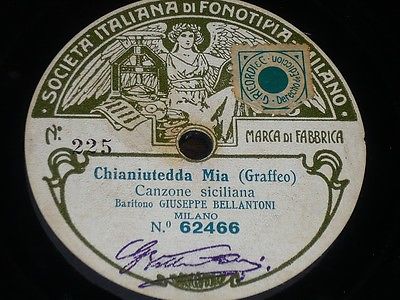
A rare Bellantoni recording
But back to the great, great Giuseppe Bellantoni, who began our SOL "Gone but
not forgotten" edition today. Bellantoni was a Sicilian bass-baritone, whose
beautiful, warm voice had an exceptionally sweet and mellow tone. The man was
initially a doctor, but, thankfully, quit that career in order to sing.
Considered one of the greatest baritones of the 19th century (and I would add
the 20th), Bellantoni only made 14 acoustic recordings in 1909-10. Here is one
of them, the classic Tosti Neopolitan song, "L'Ultima Canzone." The SOL pen-Ultima
choice of today's selections. Listen to his gentle fade-out (diminuendo) at the
end.
https://www.youtube.com/watch?v=rw6O3mHu70g
Translation:
https://www.lieder.net/lieder/get_text.html?TextId=3831
FINAL BOW:
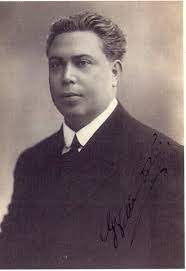
Giuseppe Bellantoni, it turns out, was not only an exponent of Verdi and Italian
opera---but a great interpreter of Wagner. Lucky for us, he recorded "Wotan's
Farewell" from "Die Walkure" as one of the 14 total recordings he ever made,
back in 1909. To make it even more special, he sang it in Italian. Here it is, "Leb
wohl du kühnes herrliches kind," or "Farewell, darling, beautiful child."
https://www.youtube.com/watch?v=IVssxMttHYU
Synopsis:
Wotan, king of the gods, has stupidly decided to punish his favorite daughter,
Brunhilde, for disobeying his orders. Never mind that she knew the orders were
not from his true desire---but were forced on him by his shrew wife (her
stepmother), Fricka. At first, Wotan decides to simply strip Brunhilde, the
Valkyrie, of her godliness, and abandon her to the human world. After she pleads
with him, he breaks down. Instead, he will indeed render her a mortal, but will
put her in a magic sleep, surrounded by a magic fire that only the "greatest of
heroes" will enter.
Translation: (search for third "farewell")
https://www.opera-arias.com/wagner/die-walk%C3%BCre/libretto/english/
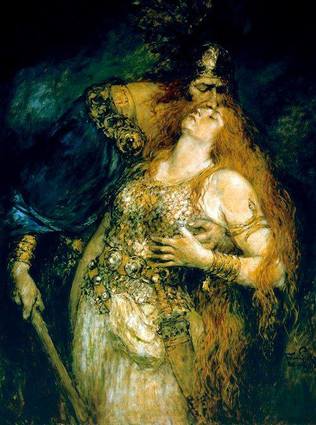
Back to Opera Links
Back to Home Page
|



